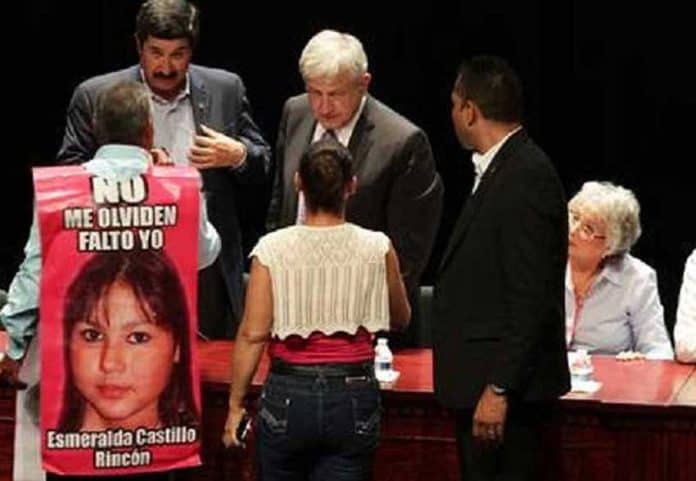The murder of 11 people in a home in Ciudad Juárez last week amid a wave of violence has triggered fear among residents that the northern border city could see a repeat of the soaring homicide rates recorded late in the last decade.
The bodies of eight men and three women were found tied up in a house in the Praderas de los Oasis neighborhood last Friday. All of the victims had been tortured and two of the women had been sexually assaulted, police said.
Three women and five men were arrested Monday in connection with the crime, and municipal police said that the suspects are members of the Aztecs, a criminal gang with ties to the Juárez cartel.
As news of the homicides and grisly photos of the crime scene started to filter out, the anxiety levels of some residents began to rise.
“It was like traveling in time and being back in 2010,” said Imelda Marrufo, director of Red Mesa de Mujeres, a women’s support group for victims of crime.
“In recent months, we’ve had [homicide] figures similar to those in 2010, days with 15 deaths on average. In May, June and July, we’ve again had mass crimes that are very similar to those of that painful past. The death of the 11 people in that house is not the first [crime of this kind] and it’s even more concerning that they were young people who authorities tend to criminalize,” she said.
There were 541 violent homicides in Ciudad Juárez in the first six months of 2018, according to a count conducted by the newspaper Milenio, an increase of 35.2% compared to the second half of last year.
While the figure is still well short of the 3,103 homicides recorded in the metropolitan area of Juárez in 2010 and the 2,643 reported in 2009, the return of mass murders has set off alarm bells in the city.
Other recent multiple homicides have included the slaying of six people in a home in the Los Alcades neighborhood in late June and the execution of five men in a barber shop later the same day.
More than half of all homicides in Chihuahua in the first half of the year occurred in the northern border city, statistics show.
Kidnappings and extortion also continue to plague Juárez, where president-elect Andrés Manuel López Obrador and members of his security cabinet yesterday held the first of a series of planned security forums, which the incoming government has said will inform its crime-fighting strategy.
While yesterday’s town hall-style meeting was being held, a group of residents staged a parallel protest against crime.
Among the participants was the father of a 14-year-old girl who disappeared more than nine years ago in Juárez, a city that is also notorious for its high femicide rate.
José Luis Castillo told Milenio that since his daughter went missing 3,450 days ago, authorities have told him that she was probably “hanging out with the wrong crowd” at the time of her disappearance.
Every day, Castillo takes to the streets wearing a canvas sign emblazoned with the image of his daughter and the words: “Don’t forget me. I am missing.”
“For them [the authorities] it’s very easy to criminalize her or to say, ‘leave her,’ she must have been with a guy and if she hasn’t been found it’s because she doesn’t want to be found,” he said, adding “not all those murdered are involved in selling drugs, not all of the disappeared young women are prostitutes.”
Statistics compiled by a local activist group show that 23 young people have disappeared and 73 young people have been murdered in Ciudad Juárez this year. Castillo charged that “there is not a single person who has been arrested for these crimes.”
Many protesters yesterday said the increase in violence last decade, especially that of 2010, coincided with the arrival of military forces in Juárez as part of former president Felipe Calderón’s war on drugs.
Gero Fong, a member of an anti-militarization group, said that he and others were opposed to the Internal Security Law, that seeks to formalize the role of the military in law enforcement.
Future public security secretary Alfonso Durazo has said that the new government will gradually withdraw the military from public security duties as part of its security strategy that could also include an amnesty law and the legalization of some drugs.
In the meantime, citizens in Juárez can only hope that history will not repeat itself.
Source: Milenio (sp)
